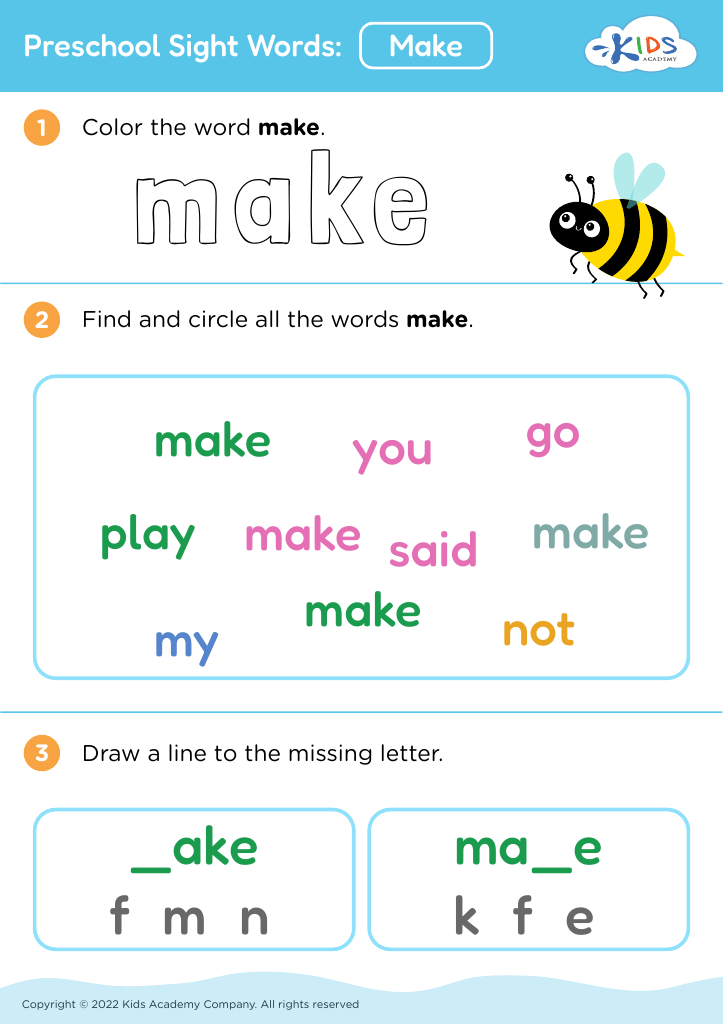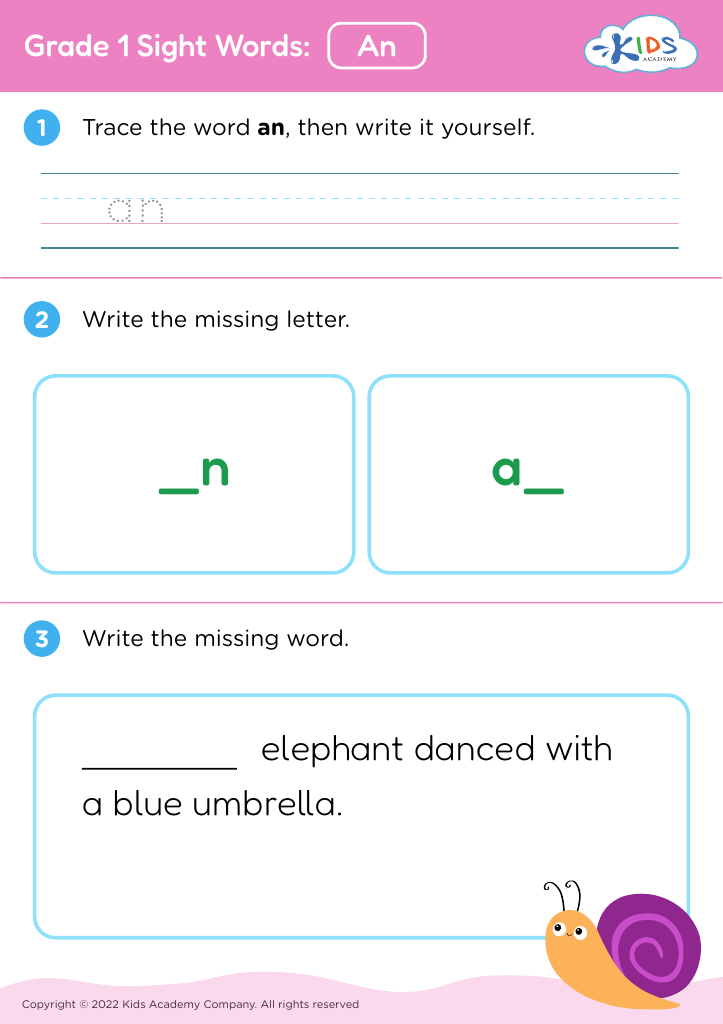Fraction Addition Building Vocabulary Worksheets for Ages 3-6
3 filtered results
-
From - To
Enhance your child's mathematical literacy with our Fraction Addition Building Vocabulary Worksheets, specifically designed for ages 3-6! These engaging, age-appropriate resources help young learners build foundational skills in recognizing and adding fractions. Each worksheet features vibrant illustrations and interactive activities that promote understanding and retention of key concepts. As children practice fraction addition, they’ll also expand their vocabulary, fostering both math and language development. Ideal for home or classroom use, these worksheets cater to diverse learning styles and encourage a playful, hands-on approach to learning. Get started today and watch your young mathematicians flourish!
Parents and teachers should care about building vocabulary around fraction addition for children ages 3-6 because early mathematical language significantly impacts comprehension and problem-solving skills later in life. Understanding fractions lays the groundwork for more complex mathematical concepts, and a strong vocabulary is central to mastering it.
At a young age, children are naturally curious and eager to learn. Introducing fraction terminology-specific words like "half," "quarter," "whole," and "combine" can help them make sense of numbers and their relationships. This foundational vocabulary not only aids in direct fraction manipulation but also enriches their overall mathematical proficiency.
Moreover, when parents and teachers use interactive methods—like games, visual aids, and hands-on activities—children can relate to the language organically while developing a positive attitude toward mathematics. An engaging vocabulary promotes critical thinking; as children become adept at discussing fractions, they also engage in higher-order reasoning as they learn to visualize and solve problems.
By fostering this vocabulary, adults support a smooth transition into more complex ideas as children progress in their education, ensuring they build confidence, enjoy learning, and develop the skills needed for future mathematical challenges. The journey into math can be joyful and successful, making early vocabulary an essential focus.






























